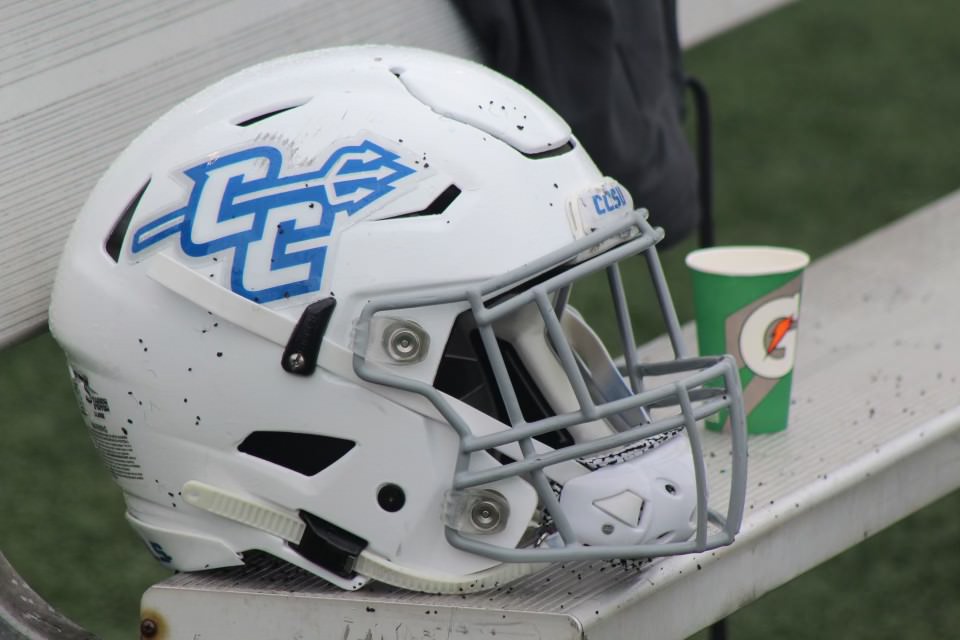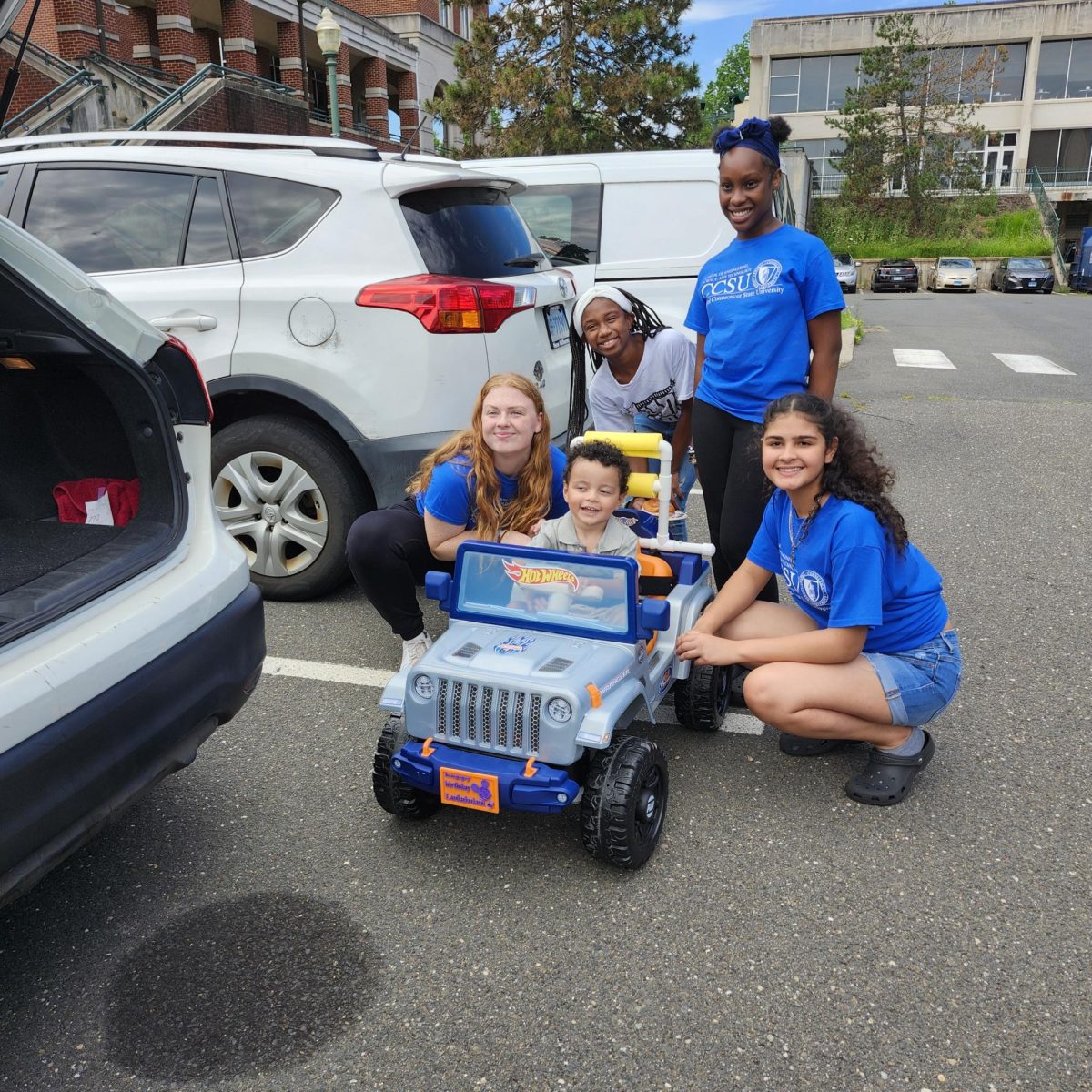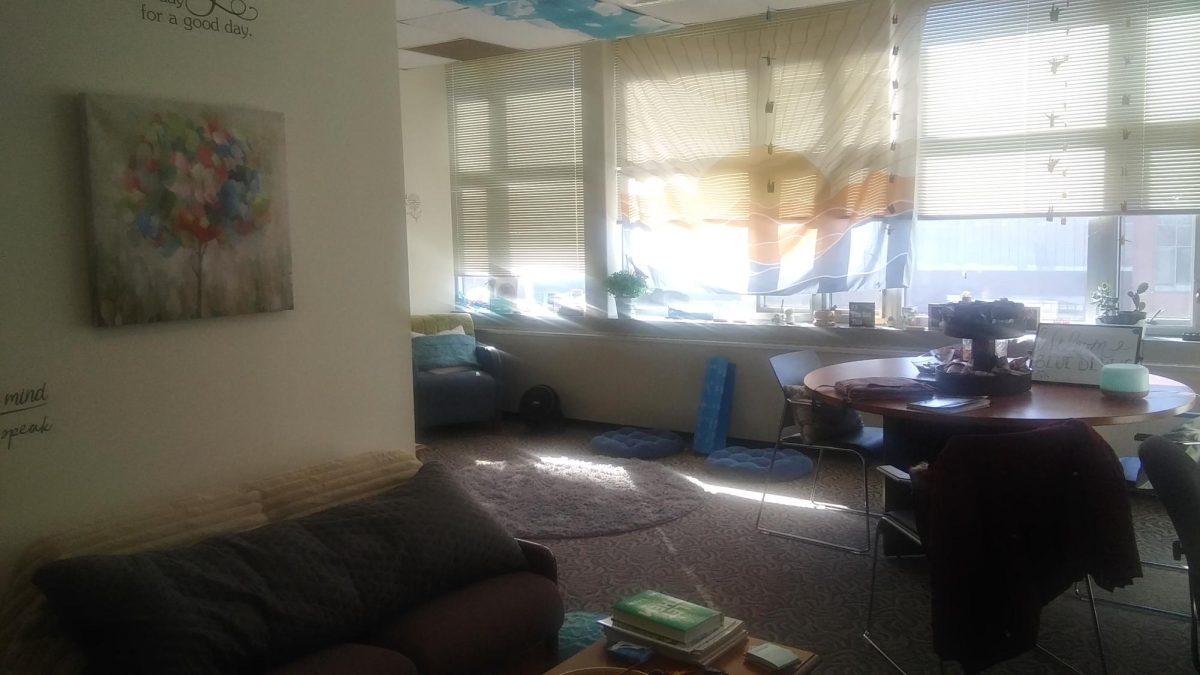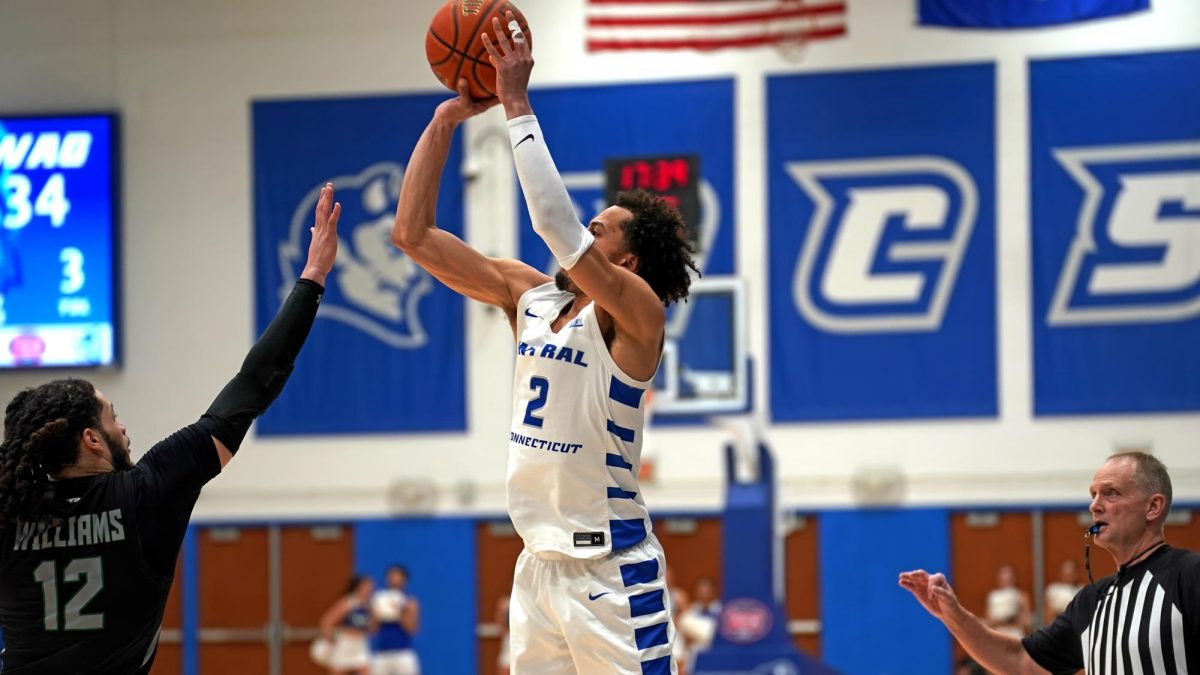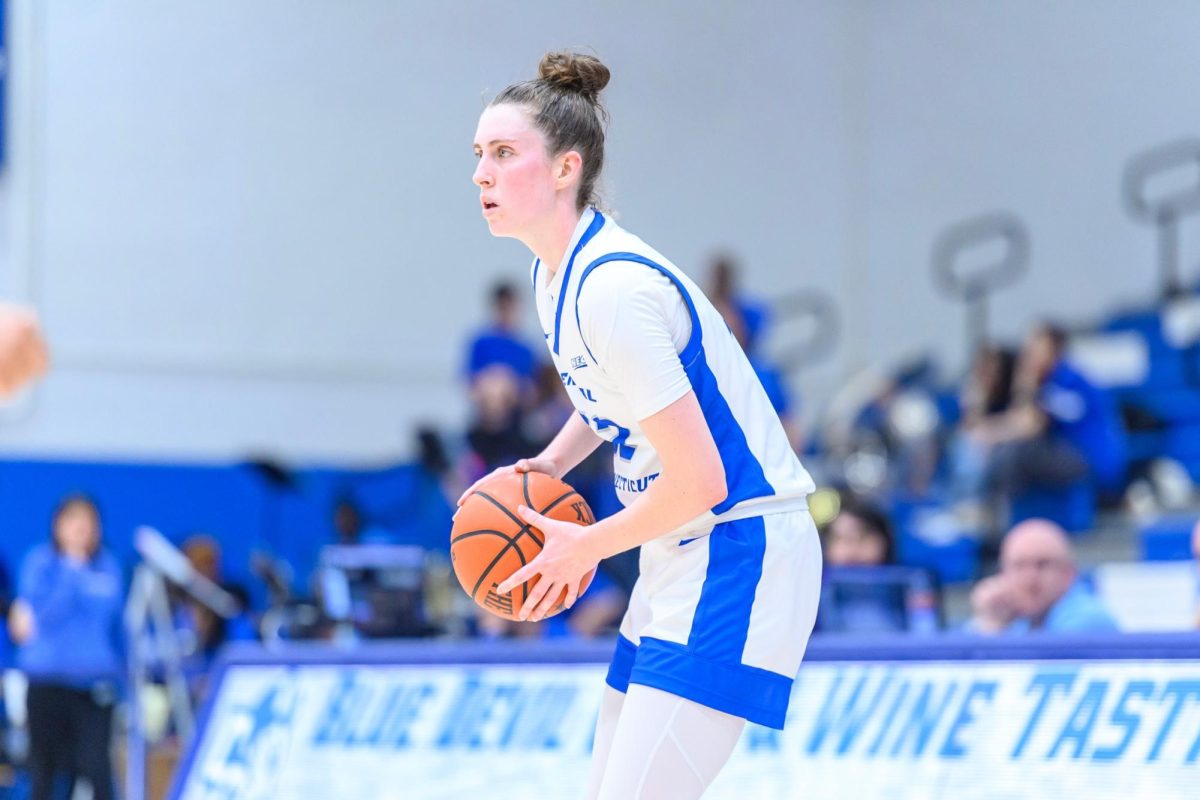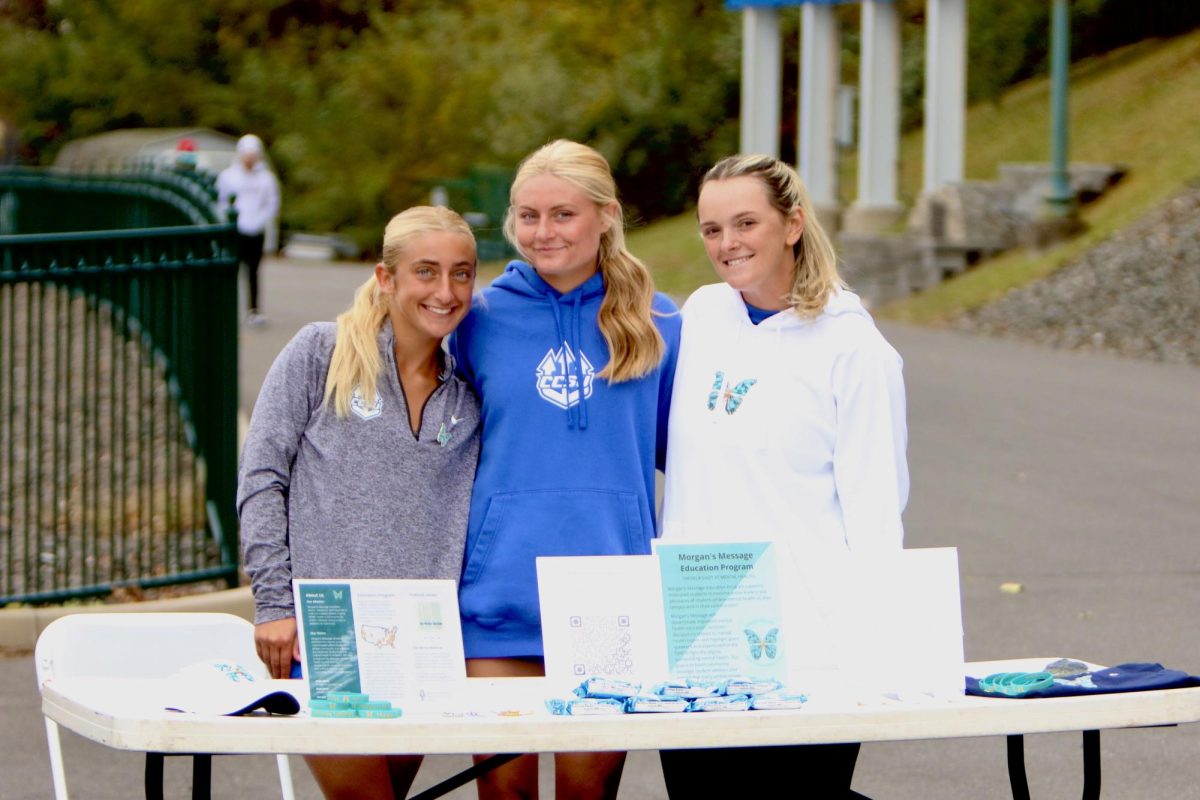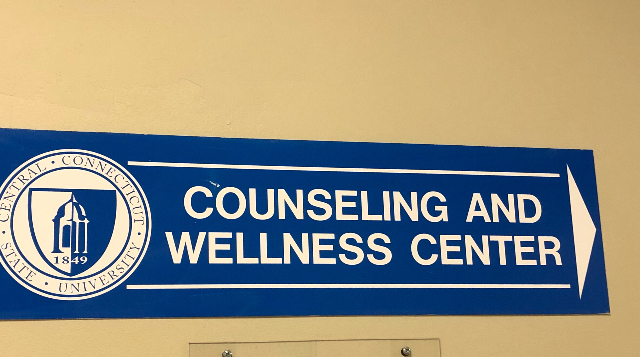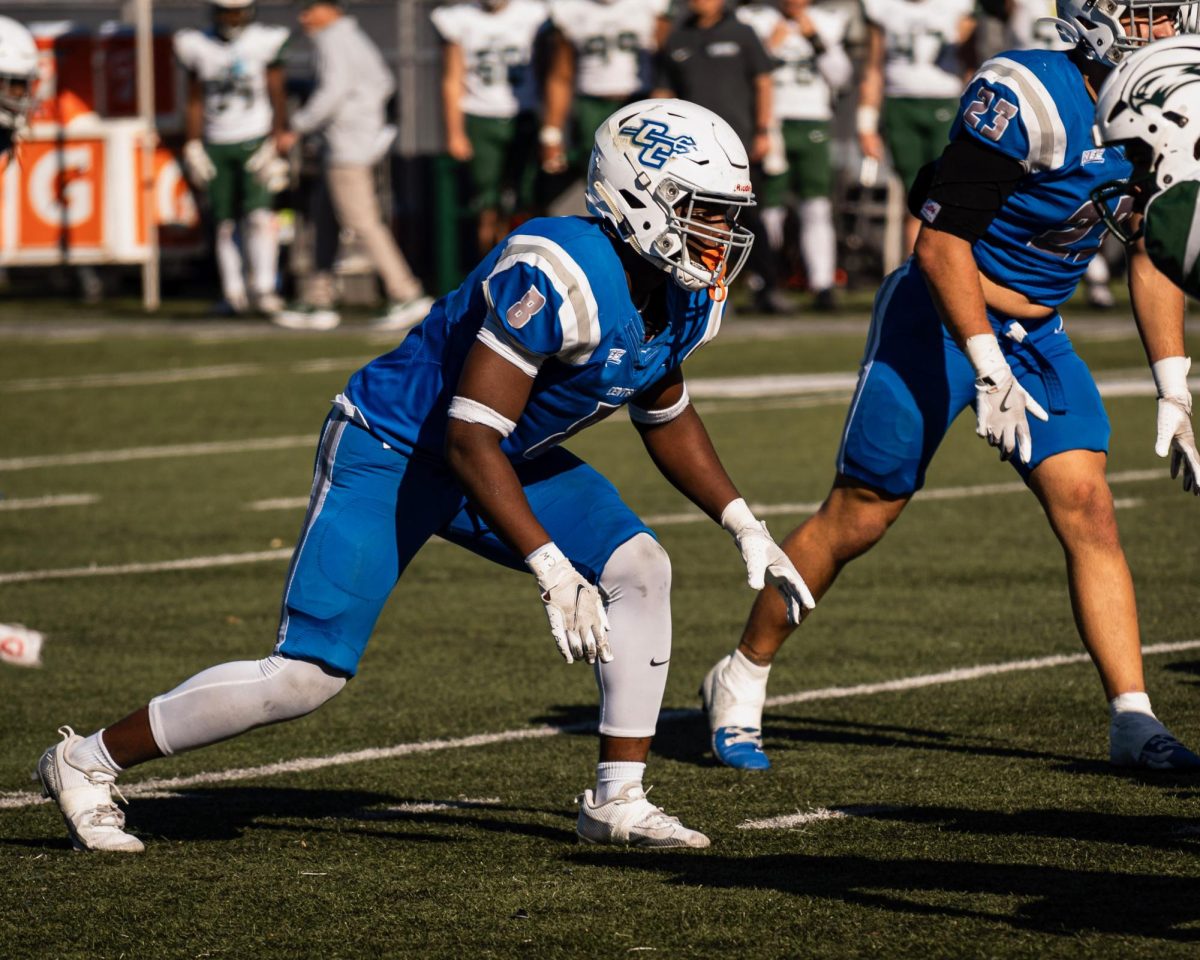When a freak injury abruptly ended Central Connecticut State University sophomore Gavin Taylor’s 2023 football season, it was a scary moment for everyone present at Arute Field.
The hush that came over the venue when the training staff escorted the stretcher onto the field was enough to know that Taylor would not be playing football again for an extended period. Such an injury provides an immense amount of physical pain, but the mental toll can be just as damaging.
As a student-athlete, mental health can take a backseat. There is a stigma among athletes that they will be looked down upon for asking for help with mental health. At CCSU, it is no different.
Whether it is through injury, performance or another factor, a student-athlete’s mental health can decline throughout the season or in some cases, longer. CCSU’s Athletics Department works tirelessly to ensure that no student-athlete feels like they have to work through their problems alone.
Taylor said his injury has come with substantial support from his teammates, coaches, and family. They are all helping him stay positive about his recovery.
“[The coaches] try to make sure I’m in good spirits,” Taylor said. “I always get texts and calls from my coaches, just making sure I’m alright and making sure that if I need anything, they’re there.”
Head coach Adam Lechtenberg and outside linebackers coach Michael Day are integral figures in keeping Taylor in good spirits during the recovery process, he said.
“[Coach Day] is really on top of making sure I’m good,” Taylor said. “He never wants us to feel like he’s just a coach … He’s a coach at the end of the day, but he’s also someone that we can call just to talk.”
Outside of coaches, the CCSU Athletics Department boasts a host of resources to keep student-athletes feeling well, both mentally and physically.
Director of Athletics Tom Pincince has made taking care of student-athletes a point of emphasis in his first two years in the role and said he plans to keep mental health at the top of his agenda.
“The mental health of our student-athletes is a priority for us,” Pincince said.
Pincince knows that being a student-athlete is very difficult between practice, games, travel, taking a full course load, and all other responsibilities. He said he aims to make life as smooth as possible for the students while supporting them in any way he can.
“What we ask our student-athletes to do on a regular basis is pretty taxing,” Pincince said. “We really just make sure they have the tools necessary to get through what is a very hectic schedule.”
The day-to-day struggles of a student-athlete are no secret to junior volleyball player Madison Massaro-Cook.
“A lot of struggles I face personally are the social life, academic, and sport balance,” Massaro-Cook said. “That balance becomes really hard when we’re getting into the depth of our season.”
Pincince and Assistant A.D. for Compliance and Student Services Molly McCarthy brought a student-athlete wellness room to Harrison J. Kaiser Hall as a resource for student-athletes to use. The purpose of the wellness room is to have a place for student-athletes to do homework, study, or just unwind.
Located in Kaiser 115, the student-athlete wellness room is open Monday through Friday, from 9 a.m. to 5 p.m. It comes fully stocked with snacks, drinks, coloring supplies, a computer, and anything else a student-athlete might need to decompress.
Each student-athlete is assigned an advisor based on the sport that they play. The advisors are always available to their student-athletes by phone and can help with anything from reaching out to a professor about missing class to talking about feelings.
Sophomore soccer player Joey Tata commended the Athletics Department for providing the services but said that most student-athletes don’t take advantage of the resources.
“We do have a lot [of mental health resources], but I don’t think people use them as much,” Tata said. “The coaches don’t push them, and I don’t think they realize that we have them. I think that’s something they should push.”
The awareness of the resources offered to student-athletes varies throughout the programs. While some were unaware of the wellness room’s existence, others said they use it daily.
Massaro-Cook said she thinks very highly of the on-campus counseling center, located in the Wellness Center on the first floor in Emma Hart Willard Hall, but said that more sports-specific mental health resources would benefit student-athletes.
Graduate professor Dr. Michael Voight is an available resource, Massaro-Cook said. But, the CCSU Athletics Department itself does not employ a specialized sports psychologist.
“I feel like if we had more resources, more counselors available, people would feel like they could get the help that they need,” Massaro-Cook said. “A lot of times, people will reach out, and if it takes them three to four weeks to answer, that three to four week period could be really crucial. It could be life or death.”
Feeling mentally well is one of the most important things an athlete can do to help their on-field performance, it has been a focal point for Massaro-Cook, she said.
“I realize that when my mental health is low, my performance is even worse,” Massaro-Cook said. “If your mental isn’t good, your physical is going right along with it.”
Taylor looks to a quote from Football Hall of Famer Deion Sanders for guidance, he said.
“‘Feel good, play good,’” Taylor said.
Tata echoed the importance of feeling good going into a game.
“It’s huge,” Tata said. “If you’re going into a game and you have all these thoughts in your mind, you can’t focus on the game when you need to.”
Massaro-Cook, an active mental health advocate, said she has one message for all students, athletes or otherwise.
“I want people to know that it’s okay to ask for help, no matter if it’s a counselor, a coach, or a peer,” Massaro-Cook said. “Reaching out is more important than not at all because your problems do matter. Even if you think it doesn’t matter, it does.”

